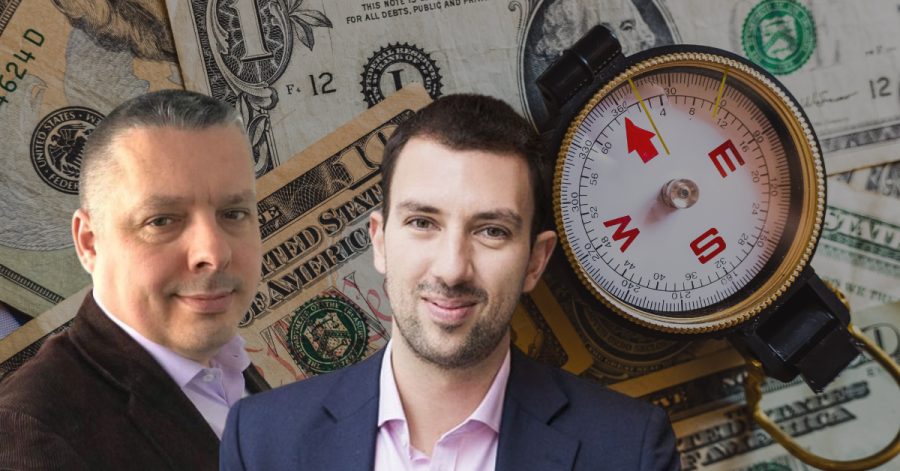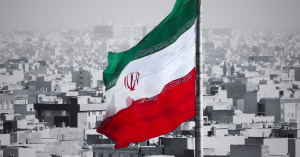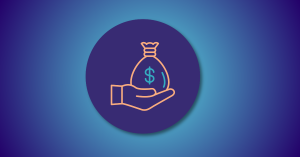“I want to know what is happening in the tech world. One of the reasons why I chose venture capital as an investment asset is the access to valuable industry information, which is beyond what we see in the news. This helps me identify potential partnership opportunities and understand what is hot in the industries I’m interested in,” Atanas Raykov, an investor in two regionally-focused VC funds, tells us.
Venture capital funds have long been recognized as vital drivers of innovation and economic growth. While much attention is given to the fund managers and their investment strategies, the role of limited partners (LPs) in the VC ecosystem often remains in the shadows.
To gain deeper insights into the dynamics of VC investments, we had the opportunity to engage in a conversation with Andrey Bachvarov, serial entrepreneur, investor, and founder of Anthill, and Atanas Raykov, responsible for global growth at Rakuten Viber. Raykov is also an LP and mentor for the portfolio companies of LAUNCHub Ventures and Eleven Ventures, part of the mentors’ network of Endeavor Bulgaria, and an angel investor of the CEO Angels Club.
With their experience as limited partners (LPs) and active investors, we explored various aspects of the VC landscape and the considerations they employ when making investment decisions.
The role of limited partners in VC
As LPs, Bachvarov and Raykov shed light on the unique role they play in VC funds. Being selected to join an elite group of like-minded individuals is an esteemed privilege, reflecting their expertise and credibility.
Contrary to common perception, the role of an LP is not merely that of a passive investor. LPs benefit from interacting with these experts, questioning investment strategies, and becoming part of an ecosystem of bright individuals who share their ideas.
“I am one of the limited partners in Eleven Ventures and it is definitely a rewarding journey. Mind that elite VCs are performing a very thorough check on who can invest, so being allowed to join a group of like-minded individuals is a badge of honor as well. The perceived role of the LP is “passive” i.e. investing money only but it is very different from buying stock or investing in financial instruments and looking for return only. An investor gets access to bright fund management individuals, their decision-making process may ask questions about the logic behind certain domain focus so it is also a golden access to an ecosystem of other bright individuals sharing their ideas,” Andrey Bachvarov highlights.
Assessing risk and return profiles
When evaluating VC investment strategies, Bachvarov emphasizes the importance of learning and educating oneself about best practices in VC investing. While past records serve as a success criterion, personal trust in the VC management team and effective communication are also essential factors.
“As LP I don’t assess the risk and return profiles, as I place trust in the fund management organization. What I am trying to do is to learn and educate myself about “best practices” including shared advice on how to properly invest my money into a certain VC. Past record is definitely a success criterion, personal trust in the VC management is another one, perceived discipline and communication quality is a third criterion,” Bachvarov explains.
Raykov, on the other hand, focuses on giving back to the local ecosystem and balances his investments between domestic and international funds. He assesses funds based on their operational approaches, startup support, sourcing quality deals, and risk appetite, placing value on a fund’s reputation among top founders as a key indicator.
“For me, the target focus is giving back. I have always been deeply involved in the local ecosystem, which is why I have never considered investing in foreign funds. I try to balance this tech patriotism and responsibility towards the local startup ecosystem with investments in other types of assets abroad. From there, I choose the investment profile of the funds I want to invest in based on my long-standing observations of how they operate, build relationships with startups, support them, source quality deals, and whether their risk appetite aligns with mine,” Atanas Raykov shares.
How to choose a VC as an LP?
To assess a fund’s deal flow and investment pipeline, Andrey Bachvarov emphasizes the importance of domain focus, adherence to investment criteria, and clear and straightforward communication to investors. These factors help determine the potential fit and alignment of a fund’s activities with an LP’s investment goals and interests.
Performance measuring and benchmarking returns are also an important part of the equation. Financial key performance indicators (KPIs), including return on investment (ROI) and adherence to investment criteria, are crucial metrics Bachvarov employs to evaluate the performance of a VC fund.
Comparatively, Raykov emphasizes the importance of a fund’s reputation among industry professionals and its ability to establish well-defined processes. Additionally, he values the opportunity to network with other limited partners and gain insider information about emerging businesses and industry trends.
Last but definitely not least is the quality of VC teams and fund managers. When assessing the quality of a VC team, Bachvarov looks for previous experience, shared values, and an impeccable reputation within the ecosystem. Similarly, Raykov stresses the importance of fund managers’ track records, established relationships with startups, and the presence of reputable auditors and regular financial reporting as indicators of a quality team.
“Some of the VC funds create mappings of their LP networks in order to fully utilize the collective expertise of their inventors. From the perspective of the LPs, this means that we also benefit from networking with like-minded professionals, industry experts, and advisors,” Raykov adds.
For LPs, ensuring their interests align with those of fund managers involves reputation, personal trust, and a track record of success. Bachvarov and Raykov both express confidence in the judgment and decision-making abilities of fund managers, which mitigates concerns over conflicts of interest.
What are the typical investment minimums and fee structures?
While Bachvarov acknowledges the broad topic of investment minimums and fee structures, Raykov shares his experience of similar terms offered by various funds. Management fees typically hover around 2%, fixed annual interest rates on returns are around 8%, and performance-based carry interest rates are around 20%. The minimum investment threshold for LPs varies between €100K and €250K, depending on the VC fund.
And when it comes to LP’s investment strategies in the current macroeconomic climate, Bachvarov believes in adapting personal choices to the changes in the external environment. Raykov, on the other hand, says that: “The macroeconomic environment hasn’t changed my decision to continue investing in VC, and I even have a meeting scheduled with another local fund where I’m considering investing.”







